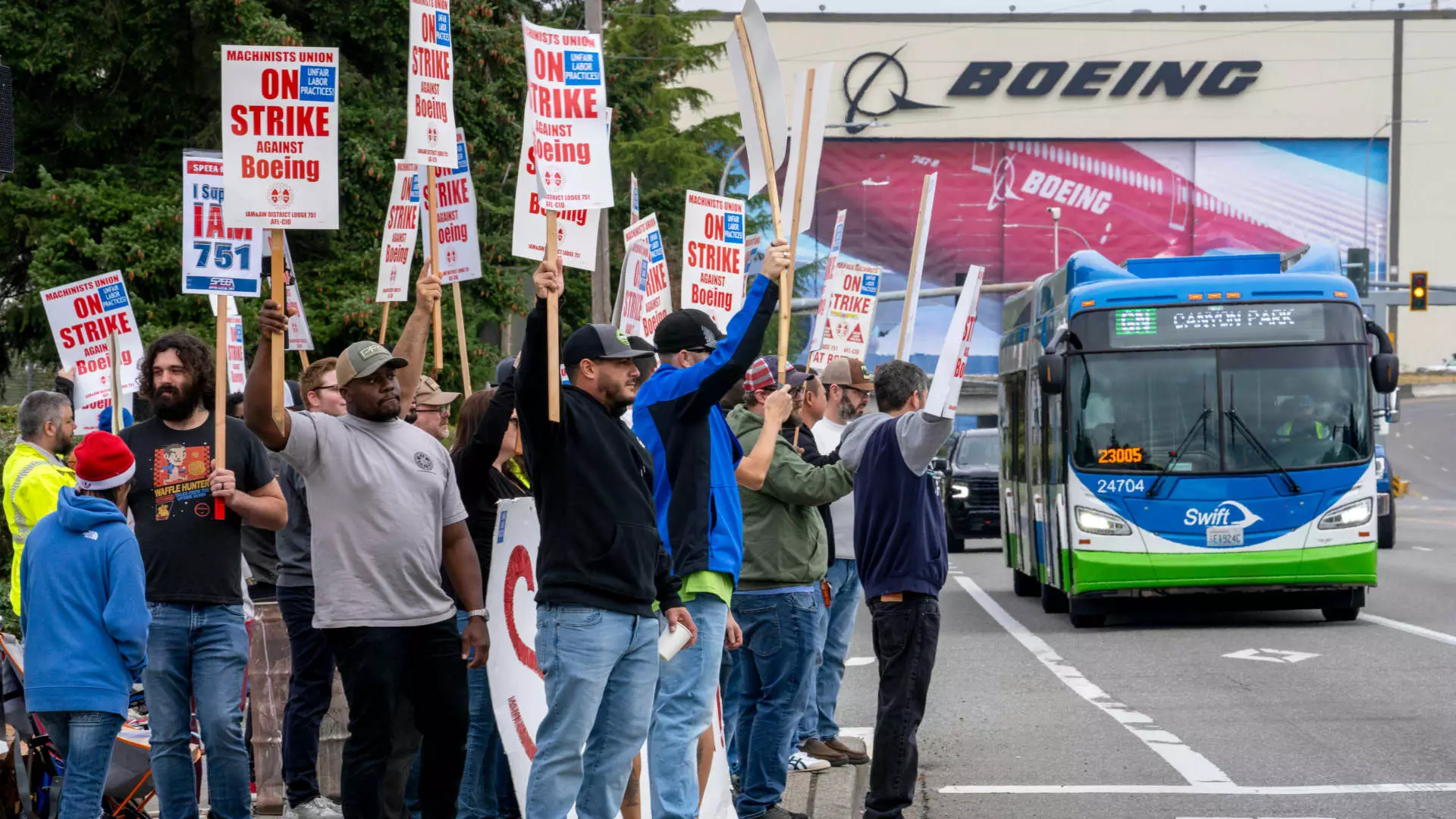Boeing, a titan in the aerospace industry, faces a significant challenge as it grapples with ongoing machinist strikes affecting thousands of its employees. The company’s recent decision to furlough executives and managers comes as a direct response to the labor unrest that erupted after machinists overwhelmingly rejected a new labor contract. CEO Kelly Ortberg’s message to employees highlights the severity of the situation, as the strike threatens to strangle cash flow in an already beleaguered company.
The fallout from the strike is not merely a matter of financial forecasting; it serves to exemplify the broader discontent that has been simmering among the workforce. With rising costs of living, particularly in the Seattle area, workers feel that the 25% raise offered by Boeing is not only insufficient but also inadequate to address their needs—especially concerning pension restoration.
The decision to implement furloughs for thousands of employees signals a drastic step aimed at tightening financial belts. This measure raises questions about the long-term sustainability of Boeing’s operational model during turbulent labor relations. Employees are expected to take one week of unpaid leave every month while the strike persists, a move that reflects the urgency with which Boeing seeks to preserve cash.
Additionally, Ortberg and other executives plan to take pay cuts during this tumultuous period, an action that may be viewed as either a commendable sacrifice or a PR move intended to demonstrate accountability to a restless workforce. Although effective in theory, it reveals the difficult balance management must strike between maintaining shareholder confidence and addressing employee grievances.
The current negotiations are problematic. Despite the involvement of a mediator, the union has expressed deep frustration with the proposed terms. The gap between worker expectations and corporate offers underscores a compounded issue: the lack of alignment between Boeing’s strategic goals and employee welfare. This discord is not merely a labor dispute; it reflects a larger crisis in employee relations and corporate governance.
The union’s rejection of the tentative contract highlights a sentiment that transcends financial compensation; it signals a demand for recognition and respect. Are these employees seen merely as cogs in an increasingly profit-driven machine, or are they recognized as essential contributors to Boeing’s legacy and future?
Boeing’s long-term future remains precarious, as it contends not only with labor strife but also with substantial debt and past operational failures tied to safety and quality concerns. The emphasis on maintaining critical programs suggests that Boeing is attempting to stabilize itself through strategic prioritization, but will that be enough?
Indeed, the company is in a precarious situation, caught between the need for operational continuity and the realities of a labor force that demands better. How Boeing manages this intricate balancing act will shape its operational integrity and its relationship with employees for years to come. The situation calls for thoughtful leadership, attentive to both the financial sheet and the human element that drives innovation and success in the aerospace industry.
As the strike continues, the evolving dynamics necessitate not only agile responses but also a reevaluation of corporate values and priorities. The outcome could redefine not just Boeing’s future, but the entire landscape of labor relations within the aerospace sector.


Leave a Reply